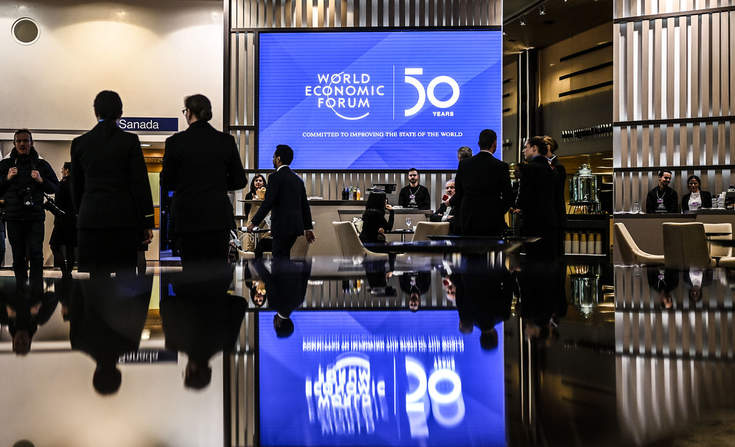Will the Davos 2020 manifesto succeed where its predecessor

The 50th meeting of the World Economic Forum (WEF) — aka Davos 2020 — is history. Some 3,000, invitation-only business, political and civil society leaders finished a week of panels, media events, wine tasting and deal making, reinforcing once again Davos’ enduring magnetism among the world’s elite.
Soon after launch of WEF in 1971, Founder and Executive Chairman Klaus Schwab introduced the concept of stakeholder capitalism, the notion that business must be accountable to employees, customers and communities as well as its shareholders. This core concept reflected the reality of two decades of post-war prosperity built on growing household income, strong organized labor and active government intervention in areas such as poverty reduction and environmental protection. Stakeholder capitalism became the centerpiece of WEF’s first "Davos Manifesto," endorsed by attendees as the forum’s foundational statement for achieving sustained prosperity.
Unfortunately, the manifesto’s call-to-action was short-lived. Economic volatility of the 1970s, coupled with the powerful impact of economist Milton Friedman’s "profits-first" mantra of corporate purpose, effectively scuttled the stakeholder model in the minds of executives and investors. With the advent of the Reagan-Thatcher era, deregulation, privatization and austerity reinforced the shift from stakeholderism to shareholderism as the defining principle of corporate conduct. While the rise of corporate social responsibility (CSR) in the 1980s tamed some of most egregious effects of this shift, shareholder primacy has remained firmly entrenched for four decades as the dominant paradigm for corporation-society relations.
This de facto parity between transnational corporations and national government in shaping the global socio-economic landscape was in full view during the proceedings at Davos.
Fast forward to WEF 2020. The assembly convened at a moment replete with crises ranging from climate disruption, species extinction, wealth disparities, human rights and privacy violations, mass migration and rising authoritarianism. In all these crises, the corporate fingerprint is discernable via environmental, labor, production and pricing practices. Meanwhile, since WEF’s creation a half century ago, corporate scale and market power have grown to unprecedented levels. The annual revenue of each of the five largest global corporations exceeds $250 billion, a figure greater than the GDP of 75 percent of the world's nations. This de facto parity between transnational corporations and national government in shaping the global socio-economic landscape was in full view during the proceedings at Davos.
Schwab, a skilled organizer and strategist, is of course well aware of this reality. The result: a new Davos 2020 Manifesto. At first glance, the new manifesto, to its credit, is more detailed and its tone more urgent. Corporations should act in the interests of all its stakeholders through a commitment to fair taxation, ending corruption, upholding human rights, fair competition, taming executive compensation and measurement and reporting of stakeholder based metrics rooted in "shared value creation."
While a more granular call-to-action is commendable, the 2020 manifesto is, at its core, new wine (French, no doubt) in old bottles. That a half century has elapsed without a fundamental shift toward stakeholderism attests to the enduring dominance of financial interests in shaping corporate behavior. For all the well-meaning efforts of campaigners, consumers, unions and business itself to redirect the calculus of corporations toward a stakeholder model, the supremacy of shareholderism remains firmly entrenched. One need only observe prevailing practices in executive compensation, stock buybacks and tax sheltering for evidence of this enduring hegemony.
The stakes could not be higher. The entanglement of corporations in every crisis facing the global body polity makes their enlightened engagement a precondition to their mitigation.
Will the Davos 2020 Manifesto prove more efficacious than its 50-year-old predecessor? The stakes could not be higher. The entanglement of corporations in every crisis facing the global body polity makes their enlightened engagement a precondition to their mitigation. Doing so does not require abandoning corporate self-interest. In fact, the opposite is the case. Addressing systemic conditions such as climate, wealth disparities and corruption is a precondition to creating the geopolitical stability and shared prosperity essential to the thriving enterprises. Corporations, in other words, stand to become a primary beneficiary of dismantling their old ways of doing business.
Will the Davos 2020 manifesto succeed where its predecessor failed? An increasingly dysfunctional world order is reason for both pessimism and optimism. Pessimism based on irrefutable evidence that the prevailing corporate model is simply incapable of urgently needed self-redesign. Optimism based on the prospect of harnessing heightened anxiety with corporate behavior into a broad-based movement for systemic change.
This is the moment to transform the platitudes of Davos into concrete actions. Patience is waning. Let Davos 2021 be a moment of reckoning.
Source:(https://www.greenbiz.com/article/will-davos-2020-manifesto-succeed-where-its-predecessor-failed)